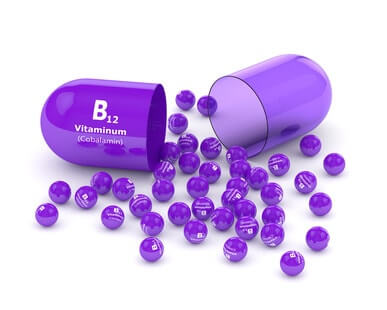Table of Contents
Blood levels in a vegan diet: Your nutrient status is reflected, among other things, in your state of well-being, your energy levels; a parameter that can be used to check your own health status most quickly. To determine this status with established tools, it is worth going to the doctor. A simple and quick method is to take a blood sample and analyze the What they tell you about your status and supplements. Because the diet influences that state of health to a considerable extent, it can be recommended for vegans, as well as those who eat a mixed diet, to do this once a year. Vegans should check certain blood values regularly, while being aware that doctors do not always have the necessary expertise. In this article you will learn some facts about the most important blood parameters and their interpretation.
Laboratory Parameters
Nutrition-related health problems can be identified by means of blood tests with laboratory analysis. In addition to traditional blood sampling and analysis, urine samples can be used to determine parameters, or certain functional tests can be performed. A distinction is made between “static” tests, such as blood or urine samples, and “functional tests” (Selig, 2016). The latter are used to examine how well the small intestine can break down nutrients (carbohydrates, fats). The best examples are tests to determine lactose intolerance or fructose malabsorption. Usually a so-called H2 breath test is performed, but also a tolerance test of simple sugars (Prinz, 2012).
The analysis of a blood sample gives a good insight into the state of health, especially with regard to nutrient status. However, it is important to note that a diagnosis of disease should not be made based on a single blood test result. As a snapshot, blood values only give indications of a possible pathological condition if there are strong deviations from the norm; if this is the case, the blood test should be repeated and other examination methods should be done before actually diagnosing diseases.
Reference Ranges and Their Origin![Blutwerte Veganer]()
For each blood parameter, there is a range with defined upper and lower limits known as the reference range. The reference range is determined by statistical studies of a healthy population and is defined as 90–95 % of healthy individuals falling within the normal range. It is also important to note that not every healthy person will fall within this range for every blood test (Selig, 2016).
Every laboratory specifically determines the range of values it considers “normal”, and there can be minimal variation between different labs. This is because each laboratory tests a different patient population using specific methods and equipment, and based on the results, determines a statistical reference range (Grass, 2017).
Interpreting Blood Levels in a Vegan Diet
There are many influencing factors to consider when interpreting laboratory data. These include gender, age, physical activity, hormonal status, and time of the day due to circadian variations. Of course, the patient’s medication regimen and pre-existing conditions that may affect the blood count must also be considered.
An example of a gender-specific parameter is HDL cholesterol, a blood lipid. Due to hormones, in men a healthy level is > 35 mg/dl, for women it is slightly higher with > 42 mg/dl. By the way, children always have specific reference values, which depend on their age (Herold, 2015).
The time of day and the time of meal intake are critical in evaluating blood levels in relation to nutritional status. Since blood levels depend on current food intake, it makes a difference for some values whether you are tested in the morning on an empty stomach or after a meal (postprandial). This is the case, for example, for blood sugar (glucose) or blood lipid values (triglycerides, cholesterol).
Important Blood Levels: Health and Diet
The Blood Count
 In a Blood Count you can look for the following parameters: In particular, the composition of the leukocytes (white blood cells), which are responsible for the immune system, plays a role. In contrast to the erythrocytes (red blood cells), there are different types of leukocytes, which are only distinguished in the complete blood count. The third group of blood cells are platelets or thrombocytes. They play an important role in blood clotting. To get a rough idea of the different values, doctors usually just test some blood levels. These include the hemoglobin (red blood pigment) and hematocrit values, which define the viscosity of the blood and the volume fraction of blood cells, respectively (Herold, 2015).
In a Blood Count you can look for the following parameters: In particular, the composition of the leukocytes (white blood cells), which are responsible for the immune system, plays a role. In contrast to the erythrocytes (red blood cells), there are different types of leukocytes, which are only distinguished in the complete blood count. The third group of blood cells are platelets or thrombocytes. They play an important role in blood clotting. To get a rough idea of the different values, doctors usually just test some blood levels. These include the hemoglobin (red blood pigment) and hematocrit values, which define the viscosity of the blood and the volume fraction of blood cells, respectively (Herold, 2015).
Diet-Related Parameters
To get a better insight into your nutritional health status, some additional blood parameters and their concrete meaning are worth mentioning. The selection of the parameters to be analyzed always depends on the objective; in routine examinations, often metabolic parameters and organ-related values (liver, kidney, thyroid, etc.) are analyzed in addition to the complete blood count.
Blood glucose levels provide information about the insulin-dependent regulation of blood glucose. However, they only show the current status. In contrast to the postprandial value, fasting blood glucose levels can be used to diagnose diabetes mellitus. This test requires at least 12 hours of abstinence from food. A longer-term parameter of glucose metabolism is the so-called HbA1c value, which reflects the blood glucose values of the past 6-8 weeks. This is the amount of glucose bound to erythrocytes and is less than 6.5 % in healthy individuals.
they only show the current status. In contrast to the postprandial value, fasting blood glucose levels can be used to diagnose diabetes mellitus. This test requires at least 12 hours of abstinence from food. A longer-term parameter of glucose metabolism is the so-called HbA1c value, which reflects the blood glucose values of the past 6-8 weeks. This is the amount of glucose bound to erythrocytes and is less than 6.5 % in healthy individuals.
Elevated blood lipid levels are a risk marker of cardiovascular disease, i.e. atherosclerosis and cardiovascular disease. In addition to the total cholesterol level, which alone does not provide sufficient information, the individual lipoprotein fractions LDL and HDL are determined. Ultimately, the ratio of LDL, which is detrimental in excessive concentrations, to HDL, which is protective, is decisive; this value should not exceed 5.
Hyperuricemia, i.e. an elevated uric acid level, is an essential parameter in purine metabolism. Its pathological manifestation is gout. A plant-based diet may counteract this.
Classic parameters for assessing liver metabolism are certain enzymes that are often elevated in diseases such as hepatitis, cirrhosis or fatty liver. These include GGT (gamma-glutamyl transferase), GOT (glutamic oxaloacetic transaminase), or GPT (glutamic pyruvic transaminase) (Grass, 2017).
To assess thyroid function, the primary test used is the examination of a hormone in the blood, called TSH (thyroid stimulating hormone). This is produced in the brain to stimulate the thyroid gland to produce its own hormones, T3 and T4. So TSH levels depend on the concentration of T3 and T4 in the blood, which can also be measured.
Important Blood Levels in a Vegan Diet
Not only vegans, but also people with a mixed diet do well, to have a health check-up and undergo a blood test at the doctor every year. The above-mentioned general blood parameters, as well as the metabolic and organ-specific parameters and/or one or the other nutrient can be analyzed.
The determined blood levels of vegans should include the potentially critical nutrients, which primarily include iron (ferritin, transferrin, hemoglobin), vitamin D (25-OH vitamin D) and vitamin B12 (holo-TC). In addition, the concentration of zinc and vitamin B2 can be determined. The concentration of calcium can also be reliably measured, but is not an optimal marker for calcium status because it is strictly regulated and kept constant within narrow limits.
Table 1: Selected Laboratory Parameters Including Reference Values (www.laborlexikon.de, accessed on: 18.11.2019 at 11:00 h)
| Reference Ranges | ||
| Men | Women | |
| Blood Cells | ||
| Erythrocytes (million/µl) | 4.8–5.9 | 4.3–5.2 |
| Leukocytes (/ml) | 4,000–10,000 | 4,000–10,000 |
| Platelets (/µl) | 150,000–400,000 | 150,000–400,000 |
| Hemoglobin (g/dl) | 14–18 | 12–16 |
| Hematocrit (%) | 40–54 | 37–47 |
| Blood Glucose Levels | ||
| Blood glucose, fasting (ml/dl) | 70–99 | 70–99 |
| HbA1c (%) | < 6.5 | < 6.5 |
| Blood Lipid Levels | ||
| Total cholesterol (mg/dl) | ||
| 20–30 years | < 200 | < 200 |
| 30–40 years | < 220 | < 220 |
| > 40 years | < 240 | < 240 |
| LDL cholesterol (mg/dl) | < 160 | < 160 |
| HDL cholesterol (mg/dl) | 35–55 | 45–65 |
| Triglycerides (mg/dl) | ≤ 200 | ≤ 200 |
| Lipoprotein a (mg/dl) | 0–30 | 0–30 |
| Purine Metabolism | ||
| Uric acid (mg/dl) | 3.4 – 7.0 | 2.4 – 5.7 |
| Liver Metabolism | ||
| GOT (U/l) | 10–50 | 10–35 |
| GPT (U/l) | 10–50 | 10–35 |
| GGT (U/l) | Until 66 | Until 39 |
| Thyroid Levels | ||
| TSH basal (µlU/ml) | 0.27–4.2 | 0.27–4.2 |
| fT3 (pmol/l) | 3.4–7.2 | 3.4–7.2 |
| fT4 (ng/dl) | 0.73–1.95 | 0.73–1.95 |
| Vitamins | ||
| 25-OH Vitamin D3 (µg/l) | 20–120 | 20–120 |
| Vitamin B12 (ng/l) | > 300 | > 300 |
| Holo TC (pmol/l) | > 50 | > 50 |
| Vitamin B2 (µg/dl) | 6–12 | 6–12 |
| Minerals | ||
| Iron (µg/dl) | 35–168 | 23–134 |
| Ferritin (µg/l) | ||
| 16–50 years | 34–310 | 22–112 |
| 50–90 years | 4–665 | 13–651 |
| Transferrin (mg/dl) | 212–360 | 212–360 |
| Zinc (µg/dl) | 70–120 | 70–120 |
Supplements and Blood Levels in a Vegan Diet
 In a vegan diet, especially the two vitamins, which are usually supplied in the form of dietary supplements, are important. These include vitamin B12 and vitamin D. Vitamin B12 is obligatory to substitute, and the dose of the supplements should be adjusted to the individual blood level. However, the dose should not be based (only) on the vitamin B12 concentration in the blood, as this is only a short-term value. More valid is the biologically available transport protein holo-transcobalamin (holo-TC) . Another parameter for the vitamin B12 status is the concentration of homocysteine, an amino acid that is integrated in the cobalamin metabolism and whose concentration is increased in vitamin B12 deficiency.
In a vegan diet, especially the two vitamins, which are usually supplied in the form of dietary supplements, are important. These include vitamin B12 and vitamin D. Vitamin B12 is obligatory to substitute, and the dose of the supplements should be adjusted to the individual blood level. However, the dose should not be based (only) on the vitamin B12 concentration in the blood, as this is only a short-term value. More valid is the biologically available transport protein holo-transcobalamin (holo-TC) . Another parameter for the vitamin B12 status is the concentration of homocysteine, an amino acid that is integrated in the cobalamin metabolism and whose concentration is increased in vitamin B12 deficiency.
The second nutrient, which in most cases and predominantly in the darker months needs to be substituted, is vitamin D. You should also regularly include this nutrient in your blood work by having the concentration of the precursor of the active form, 25-OH vitamin D, tested.
Conclusion: The Most Important Blood Levels for Vegans
In summary, regular testing of your blood levels is a worthwhile method that you invest in your health. The reference ranges given can vary from laboratory to laboratory and give statistically determined guideline values, which is why minimal deviations do not immediately define a pathological appearance.
The blood levels examined in a vegan diet should include the potentially critical nutrients in addition to the classic parameters such as blood cells and metabolically relevant parameters. In particular, the substituted nutrients, especially vitamin B12, but also vitamin D, should be given special attention in the blood count to adjust the supplementation. Ultimately, additional supplementats should be used according to the determined blood levels.










Leave a Reply